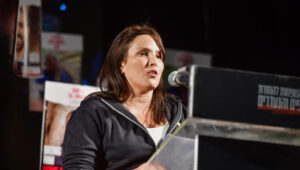In the world in which we live today, we encounter quite a bit of cynicism. Many of us can recognize it even right here inside us, especially in our reactions to all kinds of events.
We might tend to think that the more cynical a person is, the smarter, the more sophisticated, understanding, successful and popular. Some people try to show cynicism even if only to give the impression that they are all the things I just mentioned.
Such people often leave us with a sense that we are losers.
On the other hand, when we meet a person who is honest with us, whose answers are genuine and straight from the heart, we can almost feel a tide of inner excitement rising in us.
If we are able to look inside we will realize that the person who caused us such excitement is actually someone free of cynicism. This is a person who is ready to reveal his feelings and be genuine.
As you may have guessed, my aim here is for us to peel off cynicism, and peeling off cynicism is most certainly a choice.
This choice comes from knowing that cynicism is actually an illusory protective cloak that we put on ourselves. We usually do this to shield ourselves from pain. Cynicism is a weapon designed to prevent us from vulnerability and wounding:
From the very beginning, not to trust or believe.
From the very start, not to have any expectations.
From the outset, to mock and scoff at any matter or person.
Then I am supposedly protected, and nothing can hurt me. In order to peel this illusion off of us, we need to do the “work” of getting to know what is good for our own soul.
A Jewish psychological concept
Several years ago I heard a lecture dealing with Jewish psychology and the concept of “second naiveté/innocence.”
The lecturer explained that the first innocence is the one we had when we were children. The first innocence is not by choice. It’s an innocence we are born with. This is the innocence of children who have not encountered pain, difficulties, loss and crisis.
As we grow older, eventually, our life experience comes to include those unpleasant things. We get hurt. We touch brokenness and disaster. And we lose the first innocence.
Now life really begins. Now the great task before us is to practice choosing the second innocence. Unlike the first innocence, the second one is our choice, a sober-minded decision.
The second innocence does not ignore what is happening to me. It is not based on the naivety of not knowing brokenness, but rather on choosing innocence despite that knowledge. It is an innocence that requires constant maintenance, to choose it again and again because it is not natural.
Once this concept of “second innocence” seeps into our awareness, we better understand the tendencies toward cynicism. It is important to understand that second innocence is not walking through life as if you don’t know that pain or evil exists. This is not an attempt to fake ourselves as if we have not lost the first innocence. And it’s also not a denial of what we went through or how we were hurt.
Second innocence is choosing to be naïve in spite of everything that might pull us toward cynicism.
Despite knowing the pain, the evil, the brokenness, the vulnerability.
Despite everything – I choose to give a chance to this moment, to this event, to this person, to myself.
Second innocence means actively choosing where to place my point of view. It means to insist on observing what is happening through eyes that see the good potential.
Second innocence is also understanding that if something negative happens to me, it is not personal, not just aimed at me.
Second innocence is passing up on the tendency to feel like a victim. It is choosing a new opportunity.
And now I’m going to go practice my second innocence by watching Anne of Green Gable – a movie that is all about seeing the good in life, despite all the difficulty and evil that life at times does bring.
I intentionally choose what to put into my life in order to stay in this place of seeing the good.
















Those who are born-again become children of God because they have received the life of Messiah.
The Commandments convinced them they had a fallen nature so they repented, gave their life to God in an act of self-sacrifice, and were rewarded with the indwelling Son. He remained innocent even as an adult. (1 Pet 2:22) He committed no sin. (2 Cor 5:21) He humbled Himself even unto death. (Phil 2:8) He is the perfect child of God who empowers those who receive Him to be perfect children too. They are not judgemental. (Deut 32:35; Rom 12:19) Their default position is to forgive. (Matt 18:22) They are directed to cultivate a pure, godly nature. (Phil 4:8-9) Second innocence is as the lady says.